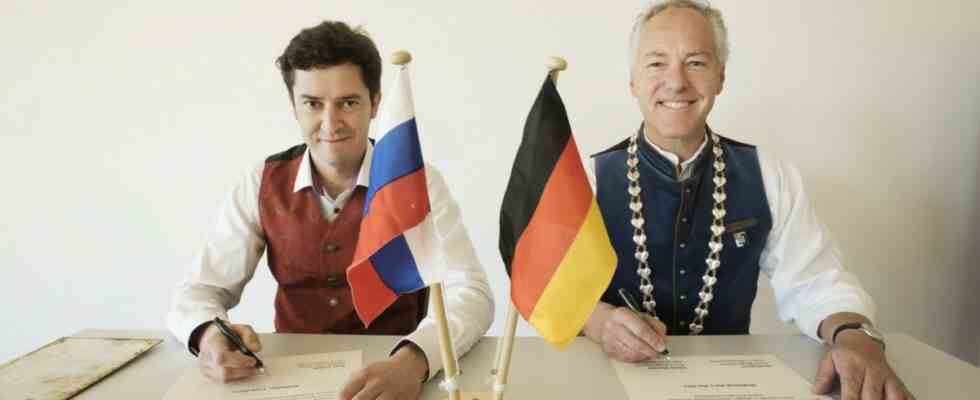Because of the war in Ukraine, the municipality of Neubiberg put its cooperation with the Russian twin town of Chernogolowka on hold at the beginning of March. In a video conference, Mayor Thomas Pardeller (CSU) and Reiner Höcherl, the chairman of the partnership association, told their friends near Moscow that the “inhuman actions of the Russian President” made joint activities impossible for the time being. At the official level, the relationship has been dormant ever since. However, friendly relationships that have been built up over the 30 years since the connection has existed continue to be cultivated. As in previous years, people phone each other, for example.
Along with breaking off official relations, Pardeller had appealed to the Neubibergers to continue the friendship. Because he thought it would be wrong to simply cut such long-standing connections. “Friendships have grown on a human level, and we don’t want to throw them overboard,” says Höcherl. Despite the private contacts, one can only speculate how the people in Chernogolovka really view the war. Because as you can hear from the partnership association, most of the residents of the city of 20,000 keep a low profile when talking to their Neubiberg friends and think carefully about what they say. The fear of being intercepted when communicating with the West is apparently the reason, as Höcherl suspects.
“Nobody says anything critical about the government on the phone”
“When we talk on the phone, some say that the situation is critical, but nobody says anything critical about the government on the phone,” reports the association’s chairman. Criticism is expressed by e-mail or on the phone at most in cryptic form. How openly people dare to speak also seems to be related to their age. “Our impression from the talks with people in the partner city is that those aged 50 plus trust the Russian media a bit more,” says Höcherl. Younger people, on the other hand, see it through social media, as is reported in the West. “Some of them take a more critical view of the issue and speak more openly on the phone,” says Höcherl. He can imagine that other people in Chernogolovka could soon “become aware” that they were not properly informed by the Russian side. If it were really a blitzkrieg, as the Russian leadership would have its citizens believe, things would have to be different after eight weeks.
According to Höcherl, the friends in the Russian city, which is about 40 kilometers north-east of Moscow, see that Neubiberg has put the partnership on hold for the time being. “They say they are affected by the situation – they don’t say war – and that they can understand that the partnership is officially suspended.” What can be heard from the Gleis 3 youth center in Neubiberg, which has maintained a regular youth exchange with Tschernogolowka for many years, fits the descriptions from the partnership association. Because of the corona pandemic, there have only been very loose contacts with the caregivers there in the past two years, such as a few Christmas greetings via Whatsapp, as Christian Schüehle, the head of the youth center, explains; but among the young people there are still personal contacts and they exchanged views on questions about the war in Ukraine. Schuehle sees this at least as a success of the youth exchange.
Another incident fits with the assumption that many residents of Chernogolovka do not dare to comment on the conflict: A request to a woman from the Russian city, with whom there was contact, remained unanswered until Friday.

